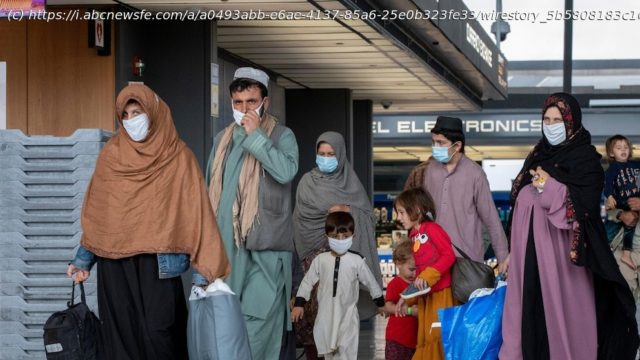Congress is considering changes to the immigration system in exchange for providing money to Ukraine in its fight against Russia and Israel for the war with Hamas
Congress is discussing changes to the immigration system in exchange for providing money to Ukraine in its fight against Russia and Israel for the war with Hamas.
President Joe Biden has said he is willing to make “significant compromises on the border” to meet Republican demands that the assistance be tied to an overhaul of U.S border policy.
Republicans say the record numbers of migrants crossing the southern border pose a security threat because authorities cannot adequately screen all the migrants and that those who enter the United States are straining the country’s resources. GOP lawmakers also say they cannot justify to their constituents sending billions of dollars to other countries, even in a time of war, while failing to address the border at home.
But many immigration advocates, including some Democrats, say some of the changes being proposed would gut protections for people who desperately need help and would not really ease the chaos at the border.
Much of the negotiating is taking place in private, but some of the issues under discussion are known: asylum standards, humanitarian parole and fast-track deportation authority, among others.
A look at what they are and what might happen if there are changes:
Using humanitarian parole, the U.S. government can let people into the country by essentially bypassing the regular immigration process. This power is supposed to be used on a case-by-case basis for “urgent humanitarian reasons” or “significant public benefit.» Migrants are usually admitted for a pre-determined period and there’s no path toward U.S. citizenship.
Over the years, administrations, both Democratic and Republican, have used humanitarian parole to admit people into the U.S. and help groups of people from all over the world. It’s been used to admit people from Hungary in the 1950s, from Vietnam, Cambodia and Laos during the latter half of the 1970s, and Iraqi Kurds who had worked with the U.S. in the mid-1990s, according to research by the Cato Institute.
Under Biden, the U.S. has relied heavily on humanitarian parole. The U.S. airlifted nearly 80,000 Afghans from Kabul, the capital of Afghanistan, and brought them to the U.






